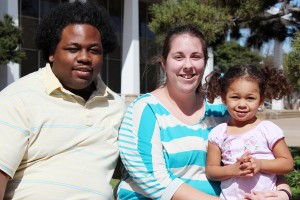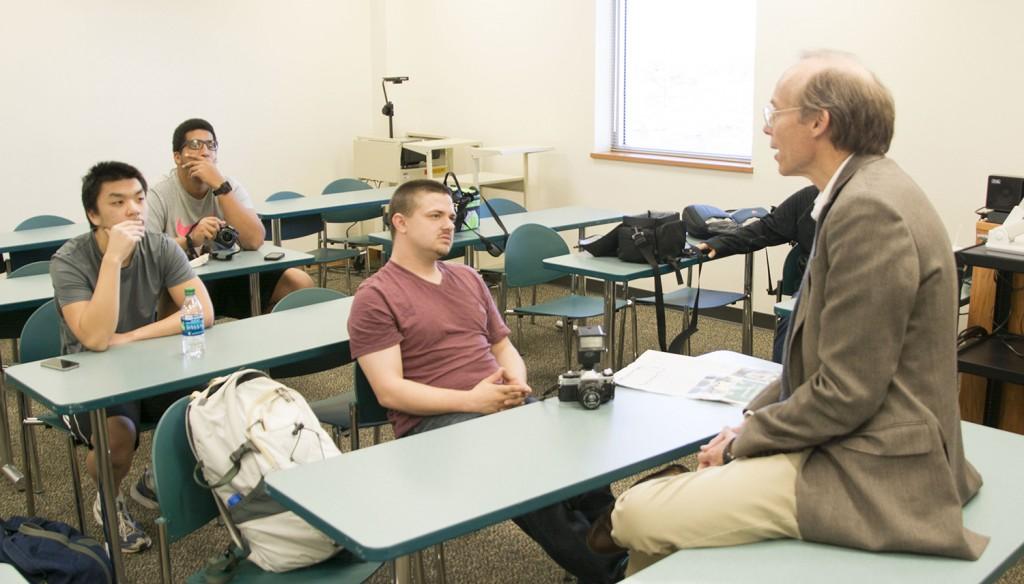By Matt Fulkerson/sports editor

As working and out-of-work adults with children return to school to further their career aspirations, many find the experience draining and stressful without support and assistance.
According to research from the Institute for Women’s Policy Research, 27 percent of community college students are parents and 80 percent of those parents rate child care as their number one priority in decisions on attending school.
While some schools offer on-site child care or partner with third-party groups such as the YMCA, TCC does not provide this option for parents enrolled in classes.
“Luckily, my son is in school, or else I wouldn’t be able to do this,” said NW student Sharon Hemphill. “I stayed home with him when he was younger because there wasn’t really an option that fit our budget for day care.”
NE Campus does offer students the ability to enroll children aged 2 through 5 in the Children’s Center, a teaching center and lab school.
Although Hemphill was aware of the Children’s Center, it was not a viable option for her family, she said.
“I looked into it, but they have a pretty long waiting list, and my son probably wouldn’t get in by the time I graduated,” she said.
Since the program is only available on NE Campus, the benefits were also outweighed by the long commute, she said.
Bobbie Austin, administrative assistant in the NE Counseling Center, agrees with this assessment and believes the Children’s Center doesn’t meet the needs of most parents.
“We don’t really recommend that students check there first,” she said. “The school costs about $200 a week, and they only allow a limited number of students in per year.”
Students instead should look to off-campus sources for assistance with their child care needs, she said.
Although child care is on the minds of most parents in school and can be a burden, the stress of maintaining their home can lead some students to strain under the heavy load.
“I’ve found it really difficult to make time for my kids while still balancing my school work,” said NW student C.J. Paterson. “I’ve spent a lot of late nights working on homework.”
However, with practice and dedication, the work required to finish school while also taking care of a family is not an impossible task.
“The one thing I would suggest to parents thinking about going back to school, or parents in school is to get organized,” she said.
Keeping a record of daily and weekly tasks is an important step in maintaining a balance between school and home responsibilities, she said.
“I keep a calendar up on the fridge with all of my homework assignments and tests so that my husband knows exactly what I’m working on and how heavy my load is that day or week,” she said. “Communication is the key.”
Between picking up kids from child care and school and taking care of normal household chores, going to school would be impossible without the support of her husband.
“There is no way I could do this without his help,” she said.
Using support groups is an important part of maintaining grades and finding success in college, Austin said.
“Students need to rely on support from their family and friends,” she said. “TCC doesn’t really offer anything specific for parents.”
Although TCC may not offer programs or assistance geared toward working parents, students can visit their campus’ counseling center if they are struggling, she said.
With such a high percentage of parents who are students, seeking the support of fellow students cannot be overlooked. Student-run organizations like Parents Helping Parents on South Campus provide a place to discuss concerns and issues.
“I’m exhausted a lot,” said Kelly Powe, president and founder of PHP. “Between school, work and being a mother, it’s hard to keep up with the smaller things.”
Having recently moved to the area, Powe said the lack of a support group of family and friends was overwhelming for a new parent trying to attend school. When she attempted to find an existing parents group for students, she was told that none existed and decided to start one.
“It was a lot of work getting it off the ground, but student activities helped a lot,” she said.
Powe encourages any students in a similar situation from other campuses to contact her through the PHP group on Blackboard for advice on starting their own student organization.
“The school really offers a lot of programs that parents should be taking advantage of, but they just don’t know they’re there,” she said. “I try to let our members know about any programs that they may not be aware of already.”
The lack of specific support for parents is not uncommon in community colleges nationwide, as reported by the Institute for Women’s Policy Research. With funding for these types of programs becoming scarce, it means that students must rely on themselves as well as their friends and family.
“Knowing that my family is proud of me and helping me succeed is what keeps me going,” Paterson said. “Whenever I think I can’t handle everything, I just take a breath and think about them.”



























